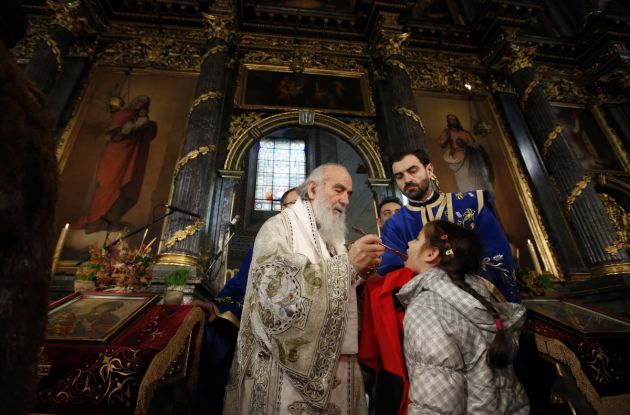Archbishop explains intricate path to Catholic and Orthodox dialogue in Serbia

In Serbia ethnic strains that erupted in the dismembering of Yugoslavia, embroiling it in civil war still simmer. Sectarian differences remain but inter-religious personal relations are good, says a senior Catholic bishop.
Stanislav Hočevar, the Roman Catholic archbishop of Belgrade, the capital of Serbia, says the Balkans is an ethnic trouble spot and in that regard, not much has changed since the end of World War II.
Historical tensions between the different ethnic and religious groups make daily coexistence complicated, the prelate said in an interview with international Catholic charity Aid to the Church in Need.
"Nobody is quite prepared to work toward a new reconciliation," said the archbishop.
Serbs, Croatians and Bosnians make a highly flammable mix, with the countries' religious leaders put in the difficult role of peace-makers.
"We should all together find new ways to reconcile with each other, otherwise it won't work. Without an ecumenical dimension we won't reach that reconciliation," Archbishop Hočevar stated.
He noted that the relationship with the Orthodox Church is good at a personal level, stressing that the churches must strive to arrive at a joint perspective on important historical events.
Some 85 percent of the country's population are part of the Serbian Orthodox Church whilst Catholics account for 5 percent, with 1 percent Protestants and 3 percent Muslims.
All the while, different interpretations of history and many theological disagreements persist.
For instance, for the Orthodox Church religious and national identity, are closely linked, the archbishop explained.
Serbians tend to emphasize the small differences between Catholics and Orthodox instead of focusing on more important, universal issues that transcend nationality.
The Catholic leader sees this leaning toward nationalistic pride as part of a lingering reaction to the communist policy of eliminating personal and national identity in favor of a new "identity of workers."
SERBIAN MINISTER OF CULTURE
Archbishop Hočevar lauded the current Serbian Minister of Culture for helping the Catholic Church repair and upgrade Catholic churches.
He explained that in late October 2014 a diocesan synod was held that focused on organizational problems and the number of local Catholics has dwindled with resources scant.
Key priorities are refurbishing churches and other diocesan buildings, strengthening ministry to children and youth, along with providing transport for priests to attend far-flung parishes.
Archbishop Hočevar is strongly committed to dialogue with the Orthodox; and the availability of theological material in Serbian is a key ingredient in this process.
Until the present, it was assumed that Catholics in Serbia spoke only Croatian but the children of mixed marriages in his diocese speak Serbian.
However, there is a catch said the archbishop,
"If the Catholic catechism is translated into Serbian, the Orthodox fear we want to convert Orthodox faithful to Catholicism. Therefore we need to go step by step."
Hočevar stressed, the reconstruction of the Balkan states is a complex and slow process.
The Catholic Church, for its part, can make a huge contribution by demonstrating the universality of faith communities, he said.
This is in a universality that transcends the often overly narrow connection between national and religious identity.
The archbishop said this broad view holds the key to Croats, Serbs and Bosnians being able to work toward living in harmony.
This story first written by Esther Gaitan-Fuertes appeared first on the website of Aid to the Church in Need on December 23.
